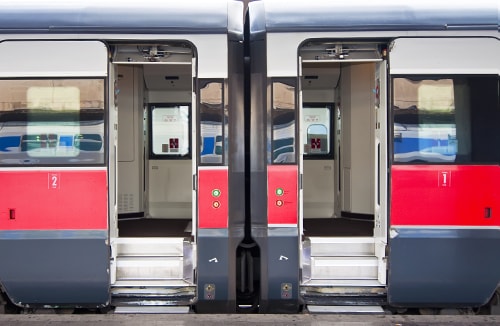Our understanding of safety management has developed alongside current market requirements. Derived from today’s standards, only very few companies with a need for safety management can actually identify with their contents. In the most part, integral components are missing, such as sufficient requirements or engineering documentation or even a safety plan to name only the most essential of documents. Projects, customers, regulatory approval or compliance requirements provide the motivation, but this always presupposes efficiency to be able to act in a cost-effective and market-oriented manner. InterEngineer safety management unites normative and company-specific requirements in order to help steer sustainable products efficiently.
Our expertise in this field extends to the introduction and implementation of methods and processes in accordance with a safety plan, as well as the creation of a safety plan in the first instance. The concrete implementation of safety processes (cf. safety compliance) can also manifest itself in conducting in-house trainings.
Risk analysis and a hazard log must be compiled not only in the case of complete vehicles, but also for subsystems with a safety implication. The correct recording of operational conditions (operational task profile) supplies key information as to where costs are arising; on one hand in proof of safe operation and in measures for risk minimisation on the other. The operating manual is generally subject to approval, so must also be assessed.
In cases where subsystems are bought in, their suppliers must equally be involved in the safety process. This generally occurs at much too late a stage and additional costs inevitably ensue. Safety management must be integrated from the very start in order to reduce costs sustainably and reduce the need for reworking. Effective supplier auditing contributes towards continual quality assurance. The implementation and application of relevant standards and guidelines (IEC 61508, DIN EN 5012x, SIRF) occurs as a matter of course. All our experience with vehicle manufacturers, subsystem suppliers, technical assessors and regulatory authorities comes into play here in a cost-saving way.
If the whole system or subsystems are available, these must be evaluated in the form of safety reports. InterEngineer has established a successful, many times proven, computer-based process that is accepted by technical assessors (cf. Meet the Standards – MtS). It enables homologation processes to be transparently designed and streamlined. It supports the ‘leading’ of technical assessors, the creation of appraisal order delimitations and appraisal reports, while generally reducing costs, lead times and evidence vulnerability of the system under assessment.
Homologation interfaces (VV IBG, MoU process, etc.), criticality evaluations according to CSM, evaluation of TEIV provisions (comprehensive changes) will be introduced into the project teams, if required, in the course of initial project handling.
Safety compliance
Our team assists you in bringing your products in line with standards and improving your processes. More…
Safety engineering
We take you through complex systems and our safety engineers are always at hand to help. More…
Functional verification
Making verification more efficient with our Meet the Standard software. More…








